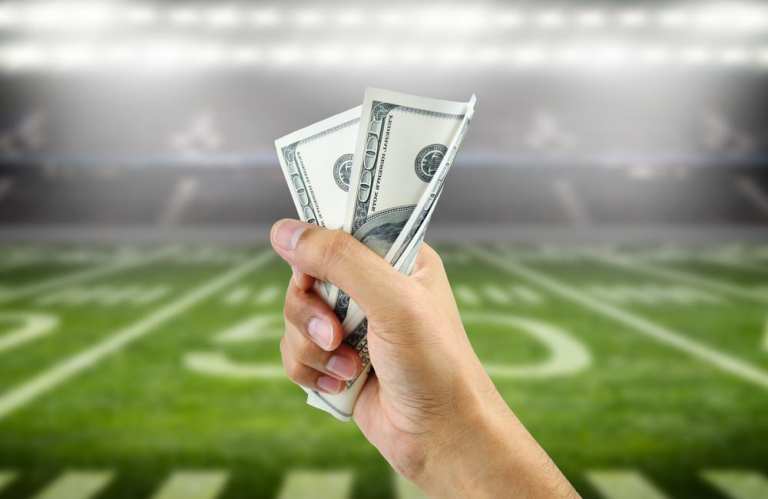Save for fans of punting, the Super Bowl offered relatively little in terms of game excitement, and will go down as a matchup that produced a low score and low TV ratings. But it stands as the major U.S. sports betting event of the year, and the first big test of legalized online sports gambling in the wake of last year’s Supreme Court decision that overruled previous prohibition — a ruling that allowed states besides Nevada to allow such wagering operations.
Figures from early this week show that bettors placed $39.5 million worth of wages with legal New Jersey sportsbook operators, but that gambling operators lost $4.6 million. (According to the AP, “Many gamblers backed the Patriots, who beat the Rams 13-3 and covered the spread of 2-1/2 points.”) Compare that to Nevada, where bettors made nearly $146 million worth of legal wagers — about 9 percent less than the 2018 Super Bowl — while gamblers in Mississippi put up at least $4.6 million.
A clear picture of online gambling spend, losses and trends is yet to emerge, but some general data points provide detail. FanDuel apparently came on the losing end, at least when measured by its losses, which reportedly amounted to $5 million. Most bets made via FanDuel were on the Patriots (as any self-respecting New Orleans Saints fan would tell you, the L.A. Rams were not the worthiest of opponents). DraftKings reportedly paid out $11 million in Super Bowl bets, with a total loss in the low seven figures.
Total Super Bowl gambling topped $4.76 billion last year, according to the American Gaming Association, with most of that from illegal wagers.
With the professional football action in the U.S. finished for yet another season – aside from the completion of the annual “will-he-or-won’t-he” retirement theater focused on Patriots quarterback Tom Brady – attention in the legal and online sports betting world now shifts to the coming months, which promise to be full of action.
Advertisement: Scroll to Continue
At least eight states have some form of legal online sports betting, with more moving toward that goal. But there’s a catch that is hanging over the industry. The U.S. Department of Justice (DOJ) recently introduced a new interpretation of the Federal Wire Act, enacted in 1961. That new interpretation “now makes the Wire Act applicable to any form of gambling that crosses state lines, including online gambling and online lottery,” according to one account. The new view of the Wire Act reportedly follows a long lobbying effort by Las Vegas casino owner Sheldon Adelson.
As that issue is worked out, gambling operators are gearing up for the new major league baseball season — a 162-game slog, not counting spring training and playoffs, that will be the first one played in full since last year’s ruling from the Supreme Court. The new, legalized landscape for baseball comes amid a sharp culture shift in that sport. The infamous 1919 White Sox, paid by gamblers to blow the World Series, came close to ruining the perception of that sport as the all-American pastime. Pete Rose still can’t get into the Baseball Hall of Fame because he refused to fully atone for his own gambling. And as recently as 2013, baseball Commissioner Bud Selig denounced any legitimate relationship between baseball and gambling.
Now, though, MLB cannot get enough of Las Vegas, and Las Vegas cannot get enough of baseball. Much like the NBA and NHL, baseball has cozied up to MGM, inking a deal that makes the Vegas property an “official gaming partner” of the sport — a deal that will result in MGM receiving more proprietary data (aka “enhanced statistics”) than the players.
The new, growing friendliness of baseball to legalized gambling presents both opportunities and challenges.
Betting on baseball in Nevada — a kind of barometer for the overall industry, even after that Supreme Court decision — hit an “all-time high” in 2017, according to one analysis, hitting $1.48 billion, double the amount spent in 2011. “Baseball in 2017 made up more than 23 percent of the overall pool, the most for that sport since generating 25 percent in 2001,” it said. By contrast, the amount of money spent on football remained “relatively flat.”
As legalized and online sports betting spreads in the wake of the Supreme Court ruling, the major sports leagues, along with the various states, are, of course, seeking to increase their piece of the revenue pie, often via what are known as “integrity” taxes. Something similar could play out in baseball, at least over the longer term. The collective bargaining agreement that governs the financial relationship between the league and its players expires in 2021 – and if you look closely, you can find speculative commentary from observers who opine that issues related to cuts from legal sports betting could become a part of those negotiations.
Those talks will continue through the upcoming baseball season, as will the legalized, online bets made possible by the Supreme Court. First up is the resolution of the issue raised by the reinterpreted Wire Act — and, of course, the glow attached to Patriots fans as they savor the latest Super Bowl victory.




